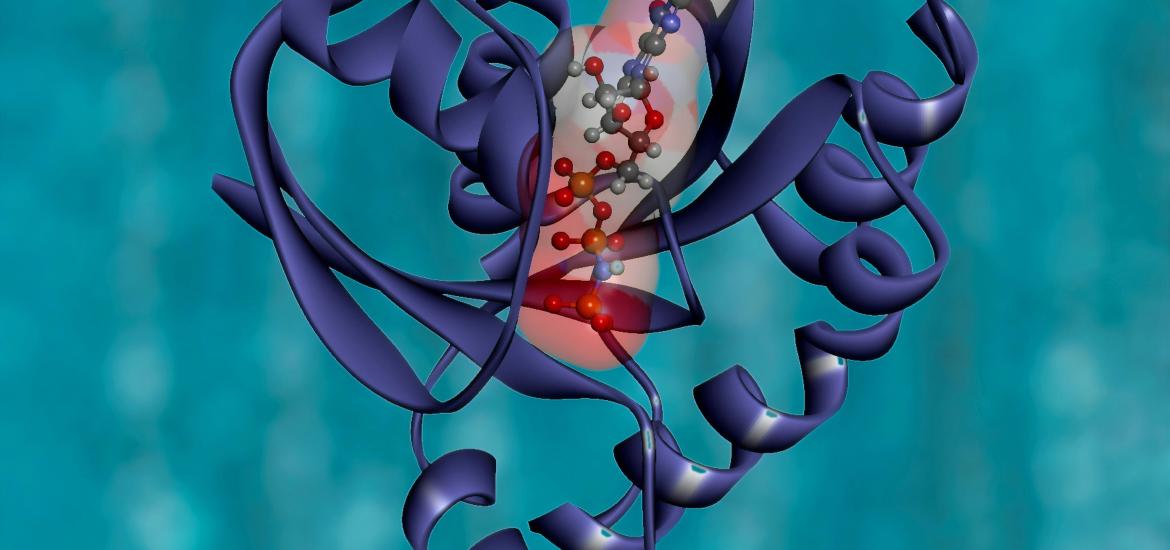
KRAS strikes back
First-in-human trial initiations reveal four KRAS assets.
First-in-human trial initiations reveal four KRAS assets.

No fewer than four KRAS inhibitors – comprising two hitting the G12D subtype, and two with pan activity – are set to enter their first human studies, recent listings on the clinicaltrials.gov registry reveal.
These are all from well-known large companies, including Lilly, which has moved quickly into phase 3 with the G12C-selective molecule olomorasib, and is now joining BeiGene, Pfizer, Revolution and others in pan-KRAS inhibition. Another big pharma name here is AstraZeneca, which last November struck a low-key licensing deal with China’s Usynova for an asset now going into phase 1.
That last asset is UA022, a KRAS G12D inhibitor now revealed to carry Astra’s code AZD0022. Astra paid Usynova $24m up front last November for what was then a preclinical project. Astra’s other work in KRAS includes AZD4625 and AZD4747 (both G12C), but these are at the preclinical stage, and Astra is some way behind the KRAS leaders.
It’s fair to say that the KRAS G12D space has failed to live up to some companies’ hopes, with Jiangsu Hengrui’s inhibitor HRS-4642 disappointing at ESMO 2023, and Astellas’s degrader ASP3082 underwhelming at this year’s conference. The clinical ranks will now be swelled by Lilly’s LY3962673, which had preclinical data at this year’s AACR, and which has just entered phase 1.
Pan-KRAS
That said, perhaps the most keenly watched area in this field is pan-KRAS inhibition, with Revolution in particular seen as leading the charge with the multi-KRAS inhibitor RMC-6236, expected to enter phase 3 this year.
Pfizer’s challenger, PF-07934040, entered its first-in-human study in July, and now two other newcomers, BeiGene and Lilly, are joining the fray. The projects in question, BGB-53038 and LY4066434 respectively, were both unveiled in pipeline updates last year, and by the end of 2024 both will be in human studies.
A notable difference is that the Pfizer and BeiGene trials both exclude patients who have been previously treated with any RAS or KRAS inhibitor. Lilly’s, however, does not, at least according to clinicaltrials.gov.
Recently disclosed first-in-human studies*
| Project | Mechanism | Company | Trial | Scheduled start |
|---|---|---|---|---|
| CT7439 | CDK12/13 inhibitor / cyclin K degrader | Carrick Therapeutics | Solid tumours | 16 Aug 2024 |
| QXL138AM | Anti-CD138 x IFN-α2a fusion protein | Nammi Therapeutics | Solid tumours & multiple myeloma | 28 Aug 2024 |
| PH009-1 | EGFR TMCS inhibitor | Puhe Biopharma | EGFR-mutated NSCLC | 10 Sep 2024 |
| BA1302 | CD228 ADC | Luye Pharma | Solid tumours | 11 Sep 2024 |
| LY3962673 | KRAS G12D inhibitor | Lilly | KRAS G12Dm solid tumours | 15 Sep 2024 |
| ALN-BCAT | RNAi β-catenin inhibitor | Alnylam | Hepatocellular carcinoma +/- Keytruda | 18 Sep 2024 |
| CT3001 | GPR35 inhibitor | Crossignal Therapeutics | Solid tumours | 28 Sep 2024 |
| NKT3964 | CDK2 degrader | NiKang Therapeutics | Solid tumours | 30 Sep 2024 |
| AMT-754 | Tissue factor ADC | Multitude Therapeutics/ Adcendo | Solid tumours | 1 Oct 2024 |
| AZD0022 | KRAS G12D inhibitor | AstraZeneca | KRAS G12Dm solid tumours +/- Erbitux | 4 Oct 2024 |
| LY4066434 | Pan-KRAS inhibitor | Lilly | KRAS-mutated solid tumours | Oct 2024 |
| BGB-53038 | Pan-KRAS inhibitor | BeiGene | KRAS-mutated solid tumours | Dec 2024 |
Note: *selected projects newly listed on the clinicaltrials.gov database between 3 and 23 Sep 2024.
Other first-in-human trial entrants also include NiKang’s CDK2 degrader NKT3964 and Multitude’s anti-tissue factor (TF) ADC AMT-754.
The former will be of interest especially after Monday’s Roche deal, under which the Swiss firm paid Regor Therapeutics $850m up front for assets including RGT-419B. That molecule is a CDK4-selective project with some activity at CDK2, and the other three key CDK2 players are Pfizer’s PF-07104091, Incyte’s INCB123667 and Blueprint’s BLU-222; these are all inhibitors, not degraders, though Blueprint does have preclinical work ongoing in CDK2 degradation.
Meanwhile, Multitude succeeded in licensing AMT-754/ADCE-T02 to the private Danish biotech Adcendo last month, and while that has yet to see a US IND filing a phase 1 study in Australia is to start imminently. TF is a relatively quiet area, with just two other clinical-stage projects in addition to the sole marketed drug, Pfizer’s Tivdak.
3513













